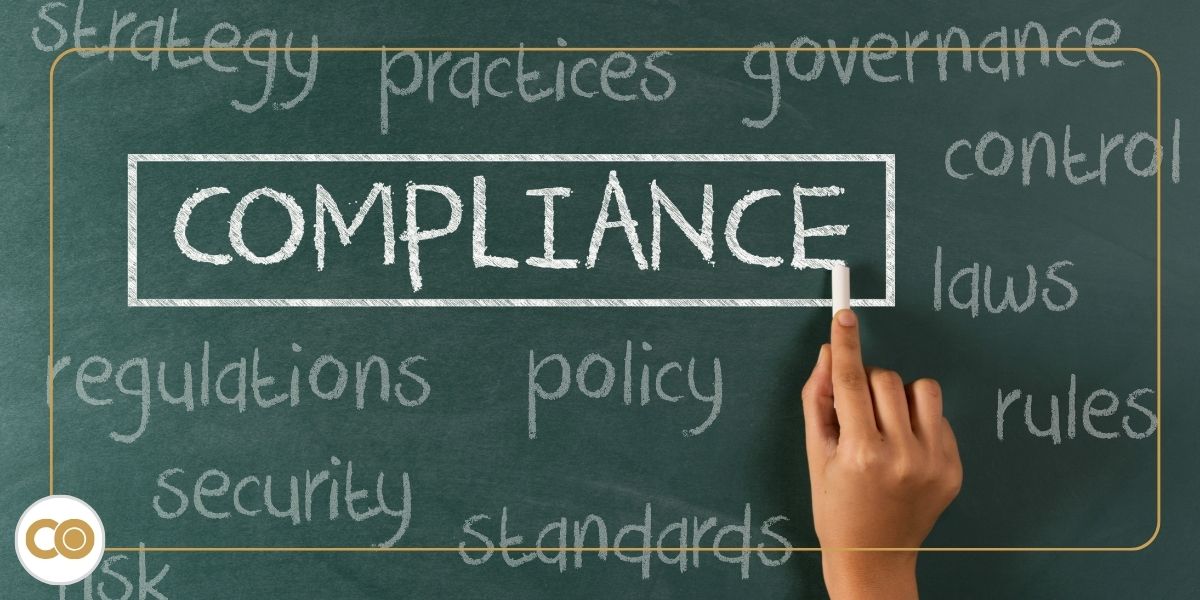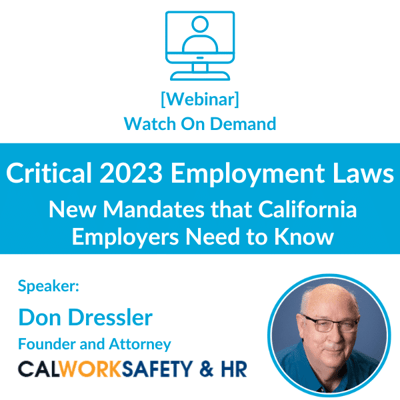Avoid Compliance Problems - 4 Types of Compliance Laws to Know and Follow
February 10th, 2023 | 4 min. read

Because changing compliance regulations affect almost every area of a company’s operations, making sure to have compliant business policies in place is no easy feat.
With this in mind, it is no wonder that many employers have a problem staying on top of their compliance policies.
Without a system to monitor and regulate compliance, you likely experience this same problem.
Our team at Combined has helped businesses, just like yours, to identify, address, and prevent compliance problems. And with the right technology to do so, our HR experts are eager to help you with this process.
In this article, we will explore 4 types of compliance law that can cause problems for your business as well as the consequences of failing to observe it.
By reading, you will learn about the intricacies involved in employment wage and hour compliance, anti-discrimination compliance, environmental health and safety compliance, and data compliance so that you are never at risk of expensive violations.
Compliance means following the rules
There are a lot of rules for running a business. And like all rules, there are consequences for failing to follow them.
Compliance, simply, means following these business rules.
When your business is out of compliance, you are susceptible to costly repercussions.
Needless to say, that is something you want to avoid.
Let’s make sure you can by examining 4 types of compliance laws that affect all businesses.
4 types of compliance laws to know and follow
With each of these types of compliance laws, there is a crucial question:
Is your business following all applicable federal, state, and local employment laws?
1. Employment wage and hour compliance
The Fair Labor Standards Act (FLSA) governs employment wage and hour compliance. It establishes a minimum wage requirement, overtime eligibility, record-keeping standards, and more.
Staying compliant in this area can be complicated by four main factors:
Location
The requirements for the same policy can vary by location. In this case, you have to make sure that you meet both.
For Example – if the federal vs. state minimum wage requirement is different, to satisfy both you must observe the higher wage.
If your business operates in multiple states or localities, geographically determined requirements must be met.
Number of employees
The requirements for the same policy can vary based on the number of employees.
The requirements for the same policy can vary based on the number of employees.
For Example – the minimum wage requirement for a small business can be different than it is for large employers.
Classification of employees
The requirements for the same policy can vary based on employee classification.
For Example – under the FLSA, non-exempt employees are entitled to overtime pay, while exempt employees are not.
Changing Legislation
The requirements for employment wage and hour policy are constantly changing.
2. Anti-discrimination compliance
As it relates to hiring, employment, and firing, compliance is governed by the U.S. Equal Employment Opportunity Commission (EEOC).
The EEOC enforces anti-discrimination laws such as:
- The Civil Rights Act – protects employees from discrimination based on race, color, religion, sex, or national origin.
- The Equal Pay Act (EPA) – protects employees from sex-based wage discrimination.
- The Americans with Disabilities Act (ADA) – protects employees from discrimination based on physical or mental disability.
- The Age Discrimination in Employment Act (ADEA) – protects employees from age discrimination
You must also observe similar state legislation.
3. Environmental health and safety compliance
EHS compliance is regulated by the Occupational Safety and Health Administration (OSHA).
Under OSHA law you must provide a workplace free from hazards:
- providing safety training, protective equipment, and preventative medical examinations
- performing routine workplace risk health standard testing and risk assessments
- Documenting work-related injury and illness
4. Data compliance
The Federal Trade Commission Act operates under the Federal Trade Commission (FTA) to define data compliance as “consumer protection from unfair or deceptive practices.”
Under this law, protection is extended against:
- The failure of a company to adhere to its published privacy statements
- The failure of a company to provide security for personal information
- The use of misleading advertising or marketing strategies
In addition to these, you must also observe sector-specific data compliance requirements.
For Example – the Gramm Leach Bliley Act (GLBA) offers data protection in the banking sector, the Health Information Portability and Accountability Act (HIPAA) offers data protection in the healthcare sector, and the Family Educational Rights and Privacy Act (FERPA) offers data protection in the education sector.
You must also be cognizant of similar state legislation.
Are you an employer in California?
Here's a must-read for 2024 compliance:
4 violation penalties for these types of compliance law
Now ask yourself again – is your business following all applicable federal, state, and local employment laws?
If you are unsure or answered “no” to this question, there are some costly consequences you should be aware of for each type of compliance law just discussed.
Here is an overview of the consequences you can expect, should your business policies be out of compliance.
1. Employment wage and hour noncompliance
If you are found in violation of employment wage and hour compliance, as reported by the US Department of Labor, you could receive a civil fine for each infraction of up to $1,000.
2. Anti-discriminatory noncompliance
Discriminatory hiring, employment, or firing practices often lead to legal damages.
Should you be met with a lawsuit, the EEOC will determine if workplace discrimination occurred.
If you are found in violation, the damages you could be ruled to pay vary by the size of your business.
According to the EEOC, the maximum damages you could be ordered to pay each afflicted employee ranges from $50,000 to $300,000
3. Environmental health and safety noncompliance
In the event of an OSHA investigation, any broken labor law can result in a penalty.
As disclosed by OSHA, the maximum fine for each serious violation, other-than-serious violation, and posting requirement violation is $14,502.
Failure to correct a violation could result in an additional maximum fine of $14,502 per day beyond the abatement period.
Finally, should you be found to willfully repeat a previous offense, you could receive a fine of up to $145,027 per violation.
4. Data noncompliance
According to the US Global Data Privacy & Security Handbook, if the FTC finds you to be out of compliance, you could be fined up to $40,000 per violation.
Additionally, each day that you are noncompliant following the initial citation is legally considered another violation.
Take the next steps toward problem-free compliance policies
Because compliance laws affect many areas of business operations, maintaining compliant business policies is a difficult job.
With the never-ending amount of compliance legislation and continual changes to it, it can become unmanageable for anyone.
By using unmatched compliance technology and a team of HR experts, we can help you leave the difficulty of it behind.
Here at Combined, we’ve helped companies, both large and small, to make sure their policies are in line and up to date with all compliance regulations.

|
Schedule an appointment with one of our HR experts to find out how our team and technology can reduce your compliance risk. |

|
How will the new laws affect your company? Watch the recorded webinar to get the answers from a compliance expert. |
 |
If you are not yet ready to speak with an expert, you may find these resources helpful: |
This article is not intended to be exhaustive nor should any discussion or opinions be construed as legal advice. Readers should contact legal counsel for legal advice.
Topics:
.png?width=1125&height=426&name=Your%20paragraph%20text%20(5).png)


